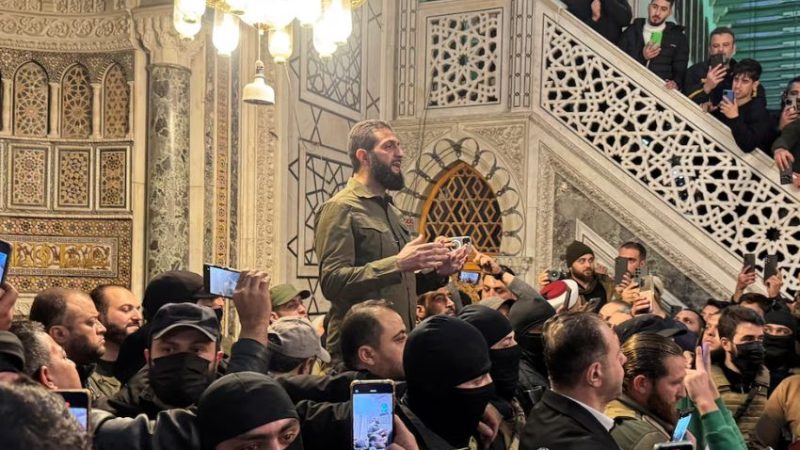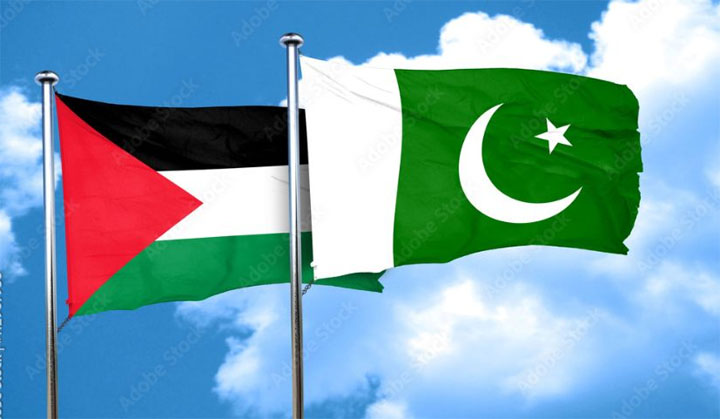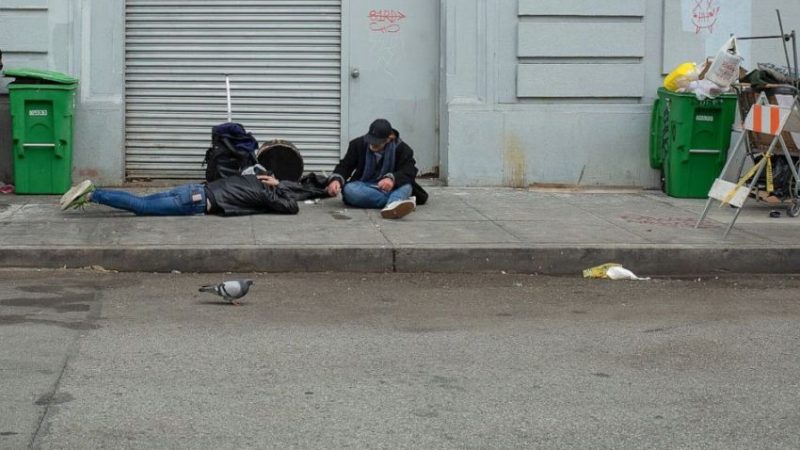Stampede at Israeli religious festival kills 44, leaves more than 100 injured
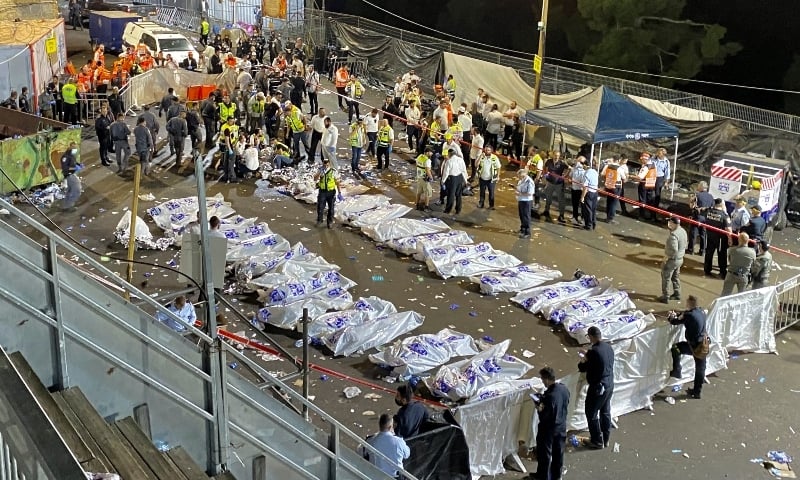
At least 44 people were crushed to death overnight on Friday at an overcrowded ultra-Orthodox religious festival in Israel with attendees describing scenes of chaos in which others died in front of their eyes.
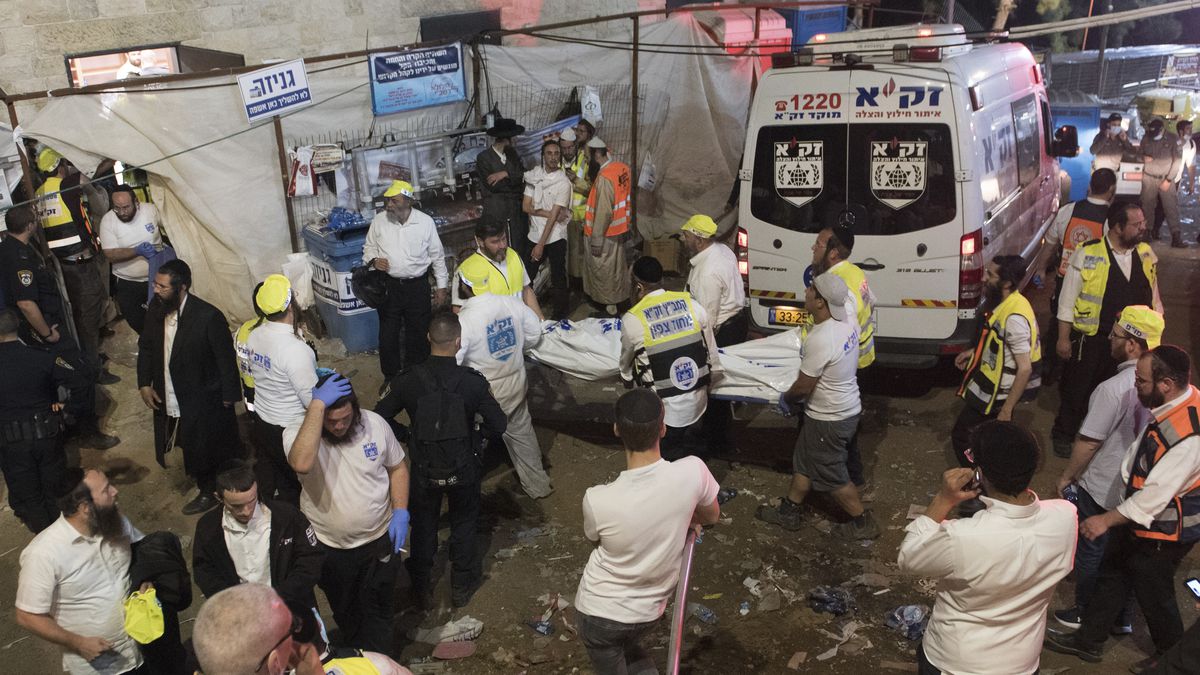
More than 100 people were injured in the chaos where tens of thousands thronged to the Galilee tomb of second century sage Rabbi Shim Bar Yochai for annual Lag B’Omer commemorations that include all night prayer, mystical songs and dance.
Witnesses said people were asphyxiated or trampled in a tightly packed passageway around three metres wide, some going unnoticed until the PA system sounded an appeal to disperse.
DEVELOPING: Dozens of people were killed in a stampede at a Jewish pilgrimage site in the north of Israel https://t.co/ClGUI4f7mu pic.twitter.com/AOWvxSJ9CR
— Al Jazeera English (@AJEnglish) April 30, 2021
Crowds packed the Mount Meron slope in defiance of warnings to maintain social distancing against the coronavirus.
Medics said there had been a stampede in the men’s section of the gender-segregated festival. Casualties included children.
Some of the dead had yet to be identified and family members of those attending the festival who were still missing called in to radio stations asking for assistance in finding them.
“We were going to go inside for the dancing and stuff and all of a sudden we saw paramedics from (ambulance service) MDA running by, like mid-CPR on kids,” Shlomo Katz, 36, told Reuters.
He then saw ambulances come out “one after the other”.
Videos posted on social media showed ultra-Orthodox men clambering desperately through gaps in sheets of torn corrugated iron to escape the crush. Bodies lay on stretchers in a corridor, covered in foil blankets.
An injured man lying on a hospital bed described to reporters how the crush began when a line of people in the front of the surging crowd simply collapsed.
‘People died in front of my eyes’
“A pyramid of one on top of another was formed. People were piling up one on top of the other. I was in the second row. The people in the first row — I saw people die in front of my eyes,” he said.
People who stayed on the scene through the night questioned how the situation so quickly spiralled out of control, though there had been concern for years about the safety risks at the annual event.
Religious leaders called for an investigation. The Justice Ministry said investigators would look into whether there had been any police misconduct connected to the tragedy.
A police spokesman said overall capacity at Mount Meron was similar to previous years but that this time bonfire areas were partitioned off as a Covid-19 precaution.
That may have created unexpected chokepoints on foot traffic, Israeli media said.
A pilgrim who gave his name as Yitzhak told Channel 12 TV: “We thought maybe there was a (bomb) alert over a suspicious package. No one imagined that this could happen here. Rejoicing became mourning, a great light became a deep darkness.
“Rabbi Shimon used to say that he could absolve the world […] If he didn’t manage to cancel this edict on the very day of his exaltation, then we need to do real soul-searching.”
Helicopters ferried injured people to hospitals and the military said search-and-rescue troops were scrambled.
ביום ראשון נקיים יום אבל לאומי בעקבות האסון בהר מירון, מהאסונות הכבדים ביותר שפקדו את מדינת ישראל. כולנו נתייחד עם היגון של המשפחות ונתפלל לשלום הפצועים. pic.twitter.com/FzUZykVzqL
— Benjamin Netanyahu (@netanyahu) April 30, 2021
With the site cleared, rescue workers collapsed against railings, some weeping as their colleagues comforted them.
Prime Minister Benjamin Netanyahu visited the scene and on Twitter spoke of a “heavy disaster”, adding: “We are all praying for the wellbeing of the casualties”.
The United States and European Union offered condolences.
As rescue workers tried to extricate the casualties, police shut down the site and ordered revellers out. The Transportation Ministry halted roadworks in the area to enable scores of ambulances and pilgrim buses to move unhindered.
The Mount Meron tomb is considered to be one of the holiest sites in the Jewish world and is an annual pilgrimage site.
The event was one of the largest gatherings in Israel since the outbreak of the coronavirus pandemic more than a year ago.
Private bonfires at Mount Meron were banned last year due to coronavirus restrictions. But lockdown measures were eased this year amid Israel’s rapid Covid-19 vaccination programme that has seen more than 54 per cent of the population fully vaccinated.




